Last Updated on December 22, 2025 by Emma Fajcz | Published: January 14, 2020
Andalusians are definitely onto something with the practice (dare I say, tradition?) of a near-daily breakfast out at a local bar or café.
Coming from an American frame of mind, where breakfast is not typically lingered over unless it’s a weekend brunch, the concept of taking the time to have breakfast out any day of the week was new to me when I first moved to southern Spain.
But thanks to the help of local friends, including some knowledgeable expats, I quickly caught on to the ways of breakfast in Seville. I can now honestly say it’s one of my favorite meals to go out for.
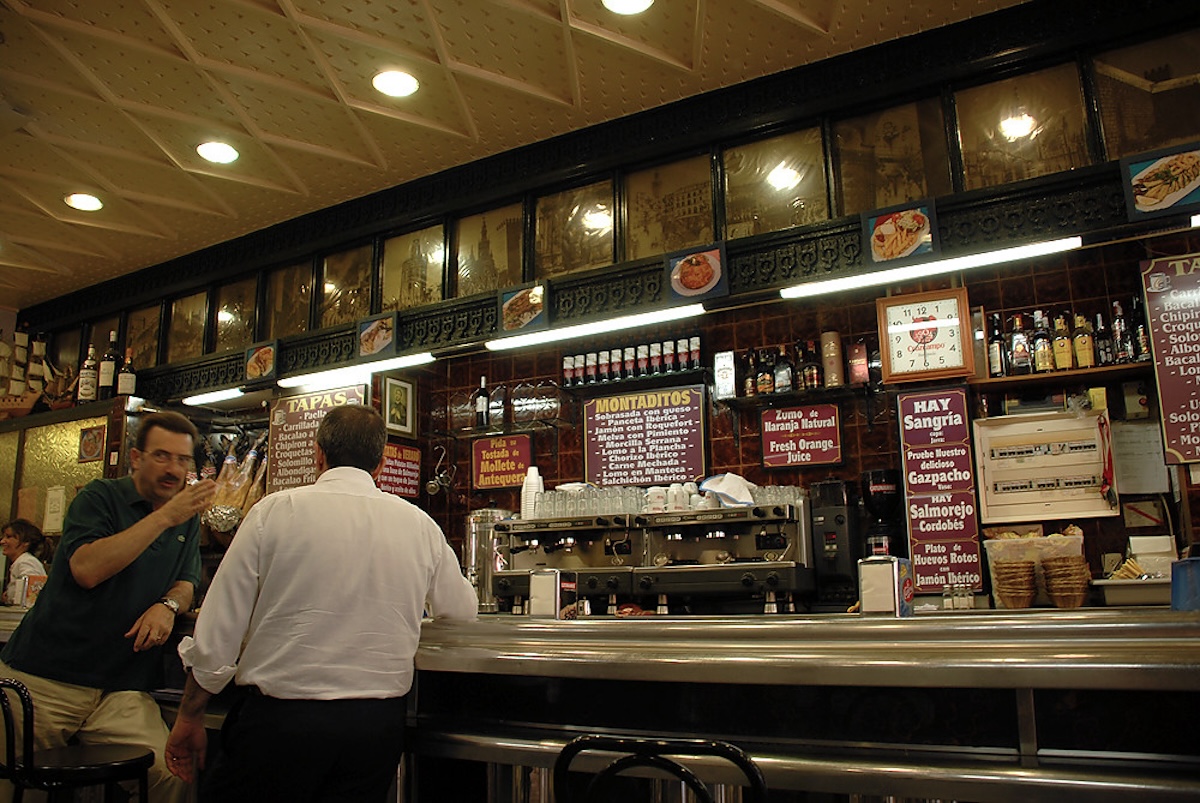
What breakfast in Seville means to me
Going out for breakfast in Seville is quality time that I relish. This is both for the beauty in consciously stopping to give my brain and body energy from some simple, healthy ingredients, as well as the opportunity to either catch up with a close friend or get some desirable alone time with a good book.
Even when alone, I almost always run into at least one person that I know, especially when I go to one of the cafés in my normal rotation. This sometimes leads to a joining of tables and a lovely surprise breakfast together.
Much unlike hanging out any time after lunch, which more often than not includes a caña, I prefer the conversations I get to have with people over breakfast. There are still plenty of laughs and jokes thrown about, but the topics tend to be more meaningful and the responses more thoughtful.
It’s also easier to get to know the people working at the bar or café on a first-name basis, too, which often leads to them remembering your regular order, expressing genuine care towards you, and a little bit of special treatment every now and again. In fact, some of my favorite café employees probably know more about what’s going on in my life than coworkers I used to sit next to every day.

What you should know about breakfast in Seville
Within the daily meal schedule of your typical andaluz, you’ll have your first breakfast at home when you wake up. That means that breakfast out is technically the second meal of the day, sandwiched perfectly between that first breakfast and lunch.
I break the rules a bit and will normally just have (my first) coffee at home before breakfast out. This mid-morning meal is the perfect time of day to press pause on whatever you’re doing and take a break to recharge and relax before going back to work.
Spanish breakfast is not a heavy meal, but it fills you up in just the right way to carry you all the way to lunchtime. Don’t expect to find eggs or bacon on the menu. If you do, you’re likely either at a more modern establishment that’s catering to an international crowd, or a tourist trap. As David of the Everyday Food Blog said, “Just because breakfast is a bit lighter here than in other parts of the world doesn’t mean it’s boring.”
The standard sevillano breakfast is toast with olive oil, tomato, and Iberian ham. You can get different types of bread (and with that, either a half or whole order of toast), there will be olive oil with garlic infused in it and without, and the tomatoes can come a number of different ways, including sliced and pureed.
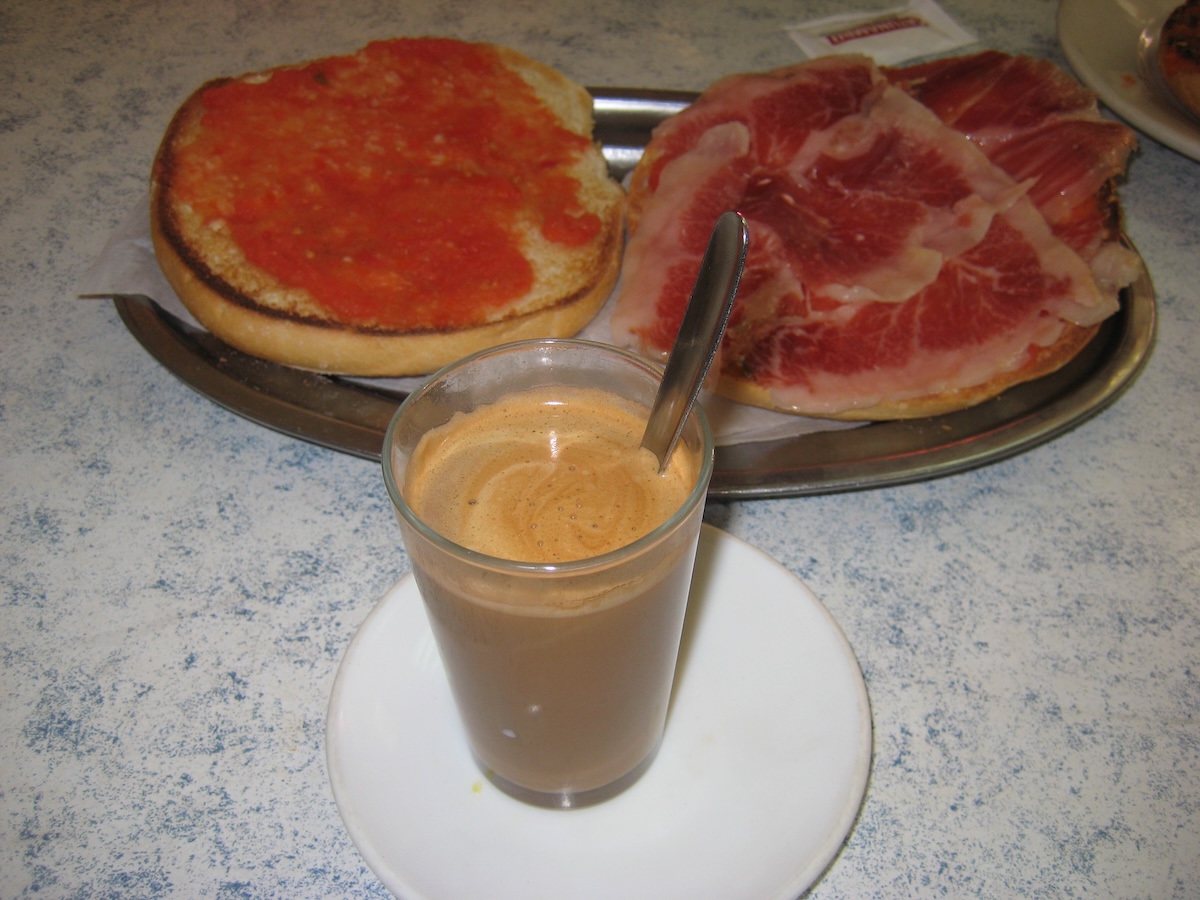
If tomatoes and ham isn’t your cup of tea, never fear! There are almost always a bunch of other options for toast toppings, including butter, jam, cream cheese, honey, manteca (lard), sobrasada (a soft-textured pork sausage), paté and more.
No matter what type of toast you choose, though, you can’t forget the accompanying freshly-squeezed orange juice and a cup of coffee, tea, or Colacao (Spain’s ubiquitous chocolate drink, which you can enjoy either hot or cold).
A ritual to maintain
One thing I know for certain is that wherever I may find myself in the world, whether on vacation or living in a new place, I will hold space for this practice of slowing down and taking time to enjoy breakfast the way they do in Seville.
Throughout my almost eight years in Spain, I’ve learned a lot from the way Spanish people make time for both each other and enjoying life’s simple pleasures—often together—and going out for breakfast definitely falls into that category. Who’d have thought you could gain such an important life lesson from the first (or second) meal of the day?
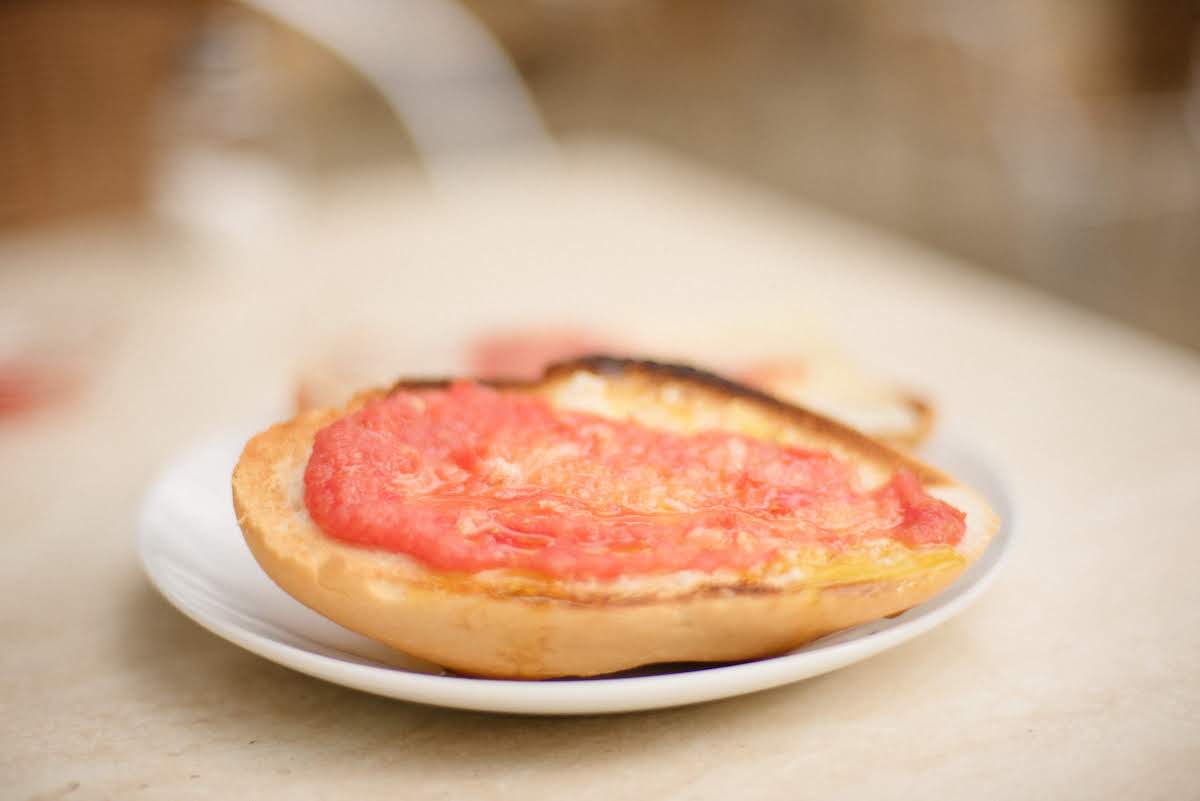
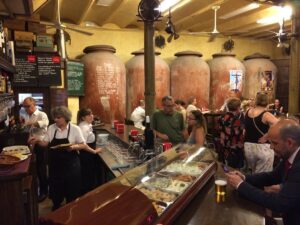
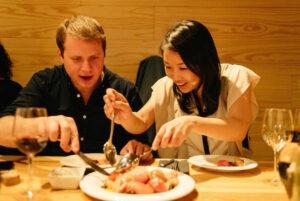








My son is an educated young man interested in teaching English as a Second Language in Spain. Do you know if any program in Sevilla? His goal is to become fluent in Spanish while there.
Hi Deb,
The English Language and Culture Assistants program is one of the most popular teaching programs for young people in Spain: http://www.educacionyfp.gob.es/eeuu/convocatorias-programas/convocatorias-eeuu/auxiliares-conversacion-eeuu.html
Placements in Seville are not guaranteed, but he can request the region of Andalusia. We hope this helps!
Beats me why people would pay £11 minimum for a hotel breakfast when you can eat out in the local square or street (which for us is Calle Jacinto in Triana) for under £3. OK, you can stuff your face in the hotel, but after a mollete or croissant plancha, a zumo de naranja and a cortado I’m quite full enough. “But if we have a huge breakfast we can skip lunch” – why would anyone want to skip lunch in Seville?!?!?
Couldn’t agree more! Breakfast at a local cafe is a much better deal in terms of both price and quality, not to mention a fantastic local experience.